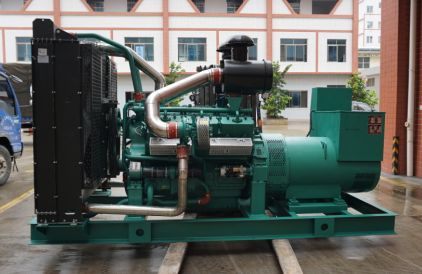What is a Diesel Generator?
A diesel generator is a mixture of a diesel engine and an electricity generator, referred as a dynamo that is meant to generate electric energy. A diesel generator may be either stationary or mobile. Actually, diesel-powered generator have already been in use in the business sector for quite some time now. The most important purpose of this engine is to transform the biochemical energy contained inside diesel into angular momentum.
Diesel generators are incredibly useful pieces of equipment that create energy by burning diesel fuel, and they are quite affordable. Additionally, since diesel generators could be switched on and off quickly and without producing delay, they may be utilised to help balance the grid’s peaking power requirements during peak periods. Generators for professional use vary in power from 8 kW to 2,000 KW, whilst generators for residential use range in power from 8 kW to 30 kW. Also found on big ships, they provide extra power for a variety of applications like lights, fans, and controls, as well as electricity for the launch vehicle. In order to generate power, the diesel generator is made up of a number of components that all function together. Many manufacturers experience over the years has allowed them to consistently provide services to which the end-customer is happy. You may get in touch with them right away if you want diesel generators hire as they give them in most competitive prices with extremely high performance for both commercial and residential usage.
Let’s know how cost can determine diesel generator
When it comes to choosing a generator, price is a big consideration for many buyers. They will not cost you in longer run. Diesel generators are often regarded as the most energy-efficient and cost-effective option available. They are designed to produce enormous quantities of electricity over an extended period of time. When it comes to diesel power generators, the most significant expense is the price of fuel used and the amount of money spent on operational costs for power applications. Nonetheless, the capital cost of backup systems, both new and second-hand, is the most expensive and, as a result, the most pressing financial worry.
A contemporary diesel generator terminal would use around a few litres of fuel per kilowatt – hour (kwh at the generator terminals, depending on its particular usage. Diesel engines, on the other hand, despite they are termed diesel engines, do not always indicate that they can only run on diesel fuel.
The engines are capable of running on a wide range of crude oil distillates, including natural gas, substances, petroleum, hardwood gas, and a variety of fuel oils ranging from diesel to residue biofuels. This is accomplished by the introduction of gas with the intake air and the use of a tiny quantity of diesel fuel to ignite the gas. It is possible to convert to 100 percent petroleum diesel operation in a matter of seconds.
Why diesel generator is a good backup?
- Diesel generators are available for purchase on the secondary market in a range of configurations. Searching online for Diesel Generators Hire that can be purchased at a lower or reduced price is a fantastic idea if you want to make the most informed and resource full buying decision possible.
- Reliability and lifespan are two characteristics that diesel generators are recognised for. If you compare them to many other kinds of generators, they’re safe and reasonably affordable to acquire as well as to power and maintain.
- A diesel engine differs from a gasoline engine for two primary reasons. First, the air is compressed by itself, without the need of any fuel (in this case, diesel). Greater air compression is enabled as a result, which results in improved fuel economy and cheaper fuel costs.
- Compared to gasoline engines, diesel engines are more powerful and efficient. They may be found in a variety of vehicles, including trains, trucks, boats, buses, and even automobiles. Diesel-fuelled generators are the most prevalent types of items available on the market.
- The use of electricity is a necessary aspect of daily life for everybody, from either the largest corporations to the smallest individuals. In comparison to a natural gas engine of the very same capacity, diesel-powered generators are capable of generating far greater energy. Because diesel comes with larger energy worth than energy resources, it is possible to create more power from a smaller engine when compared to when in comparable to natural gas.


